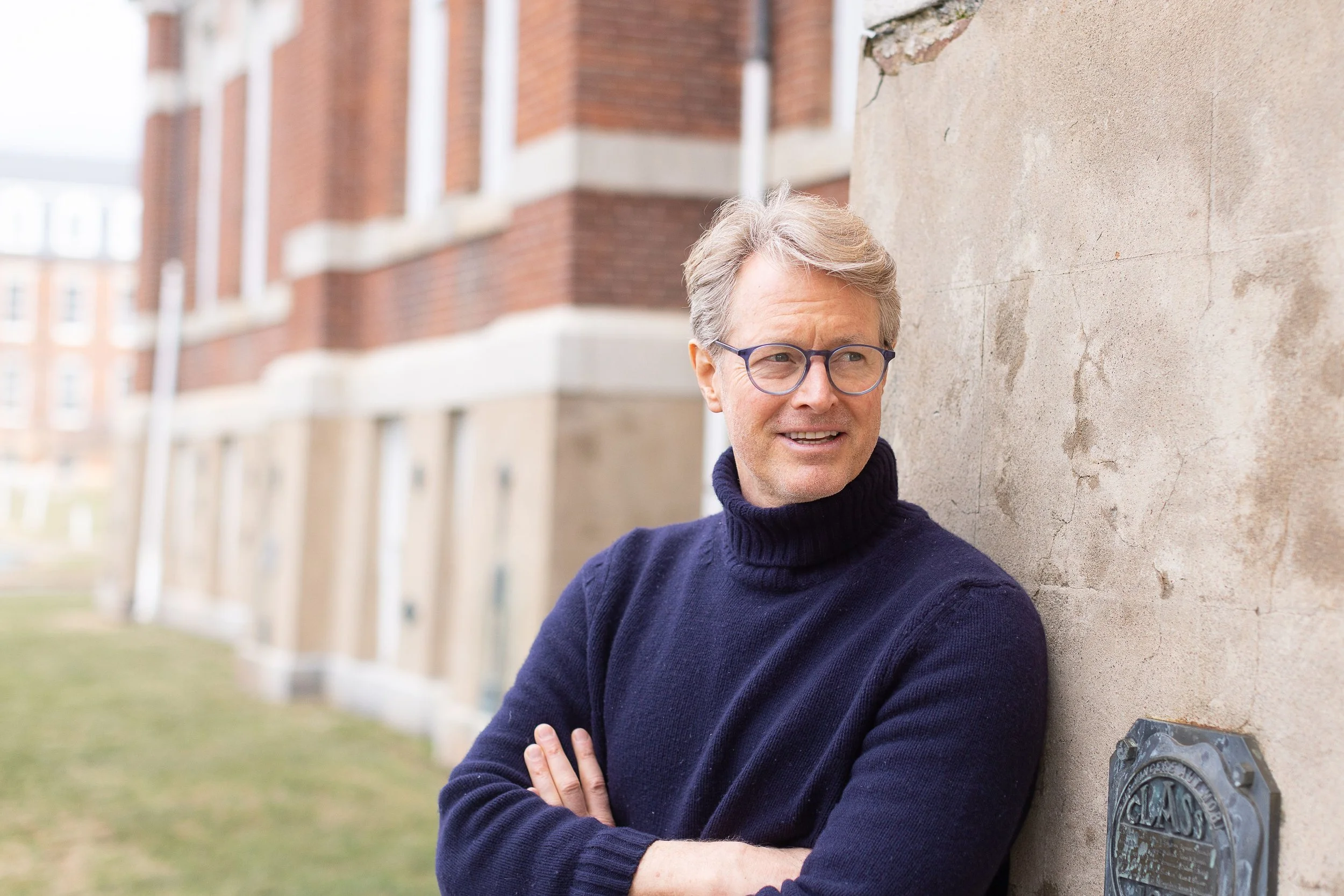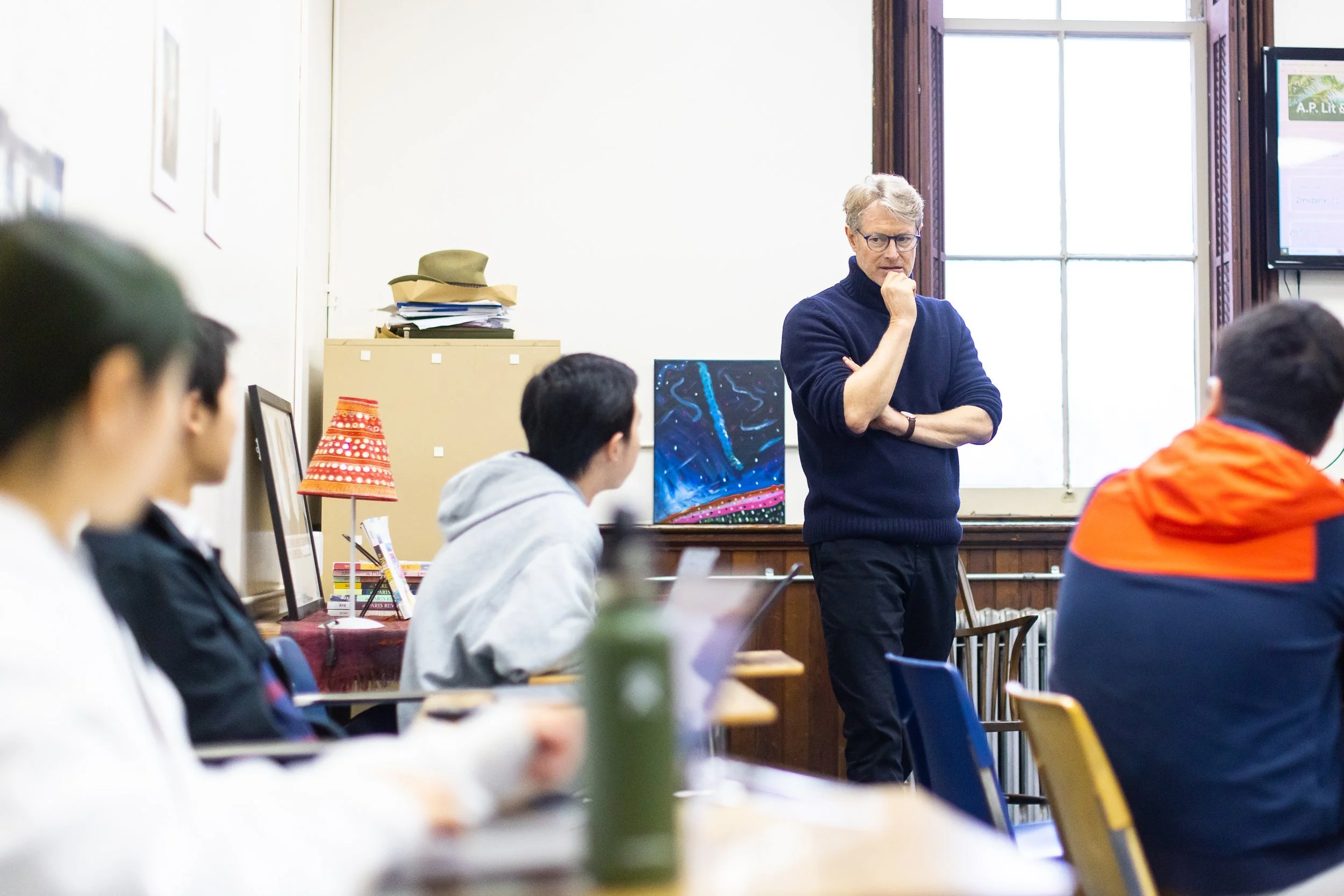The Personal is Made Universal
Seasoned English teacher, Jay Kauffmann, is on the verge of an exciting milestone in his literary career as he prepares to release his debut novel, The Mexican Messiah. Early reviews of the book have described it as a captivating journey through the realms of spirituality, where Kauffmann's concise writing style and intensely vivid scenes breathe life into characters teetering on the edge. Comparisons have even been drawn to the works of literary luminary Cormac McCarthy. The Mexican Messiah emerges as a timely and immersive odyssey, skillfully intertwining moments of profound charisma with cathartic revelations. As we eagerly anticipate the novel's release, we sat down with Mr. Kauffmann to delve into the intricacies of his book and uncover the motivations behind his writing.
Tell us about your book, The Mexica Messiah.
Part literary thriller, part travel narrative, and part metaphysical quest story, it follows the journeys of two characters drawn, for very different reasons, to an alleged holy man in Mexico. The trajectories of these two characters ultimately collide in dramatic fashion. It’s difficult to express all that the book is about. To quote what some reviewers have already said about it… it’s “a melding of the physical and the metaphysical,” “about the nature of faith and belief, the emptiness of privilege, and the baffled rage born of loss.” I was particularly pleased that the book has been compared to the writings of some literary heroes: Cormac McCarthy, Truman Capote, Paul Bowles, Denis Johnson, and Graham Greene.
What inspired you to write the book?
Well, having lived overseas for most of my life, I’ve always been drawn to expatriate literature and the expatriate experience, the idea that you can only really know oneself when you step out of your culture and environment. At that point, you are forced to face who you truly are. Placing characters in a foreign land exposes all their cracks, in a sense. I also wanted to write a book about ideas, which explores clashing philosophies and world views. And I’ve always been fascinated by Mexican culture, by how Catholicism and Mexico’s indigenous traditions have somehow merged, and how the cartel has gained unprecedented power that appears to rival that of the government’s.
What themes, events, or characters in your book do you most attribute to your personal experiences?
The way both main characters are on a quest that involves travel certainly mirrors my own early life. At the heart of my own quest was the desire to find a philosophy to live by, which led me, in my early twenties, to study in an ashram in the Maharashtra state of India. The concept was to live as monks lived 6000 years ago. As you can imagine, it was an incredibly ascetic experience – something I can’t even fathom today – but it taught me a lot, and many of those teachings went into this book.
Why do you write?
James Salter said that writers write in order to be admired, and Saul Bellow said that writers write to emulate the writers they love. It all sounds rather self-serving, doesn’t it? But I think one writes to explore something that gnaws inside, some poignant central issue, and to uncover – or at least circle – some greater emotional truth. And obviously there’s great purpose and satisfaction in that. While it may start as something very personal, it evolves through the writing into something universal. For instance, why does Jane Austen keep coming back in every story to the scenario of a character whose financial standing stands in the way of love? Well, it’s because she’s working out and trying to understand her own very personal history. And by sharing her journey with us, her discoveries become ours. And there’s the magic: the personal is made universal.
What do you think makes your life interesting?
Most likely because my path was anything but traditional: I left home at 17, ended up winning a poetry fellowship at Brandeis, and promptly dropped out of college to travel around the world. I basically lived out of a suitcase for the next 18 years (with an interval at UC/Berkeley), worked as a fashion model and travel writer, visited close to fifty countries, lived in Tokyo, Milan, Vienna, New York, and Paris.
Your family has a history in newspaper publishing. Can you tell us more about this?
My father was president of The Washington Evening Star newspaper company, the fourth generation of Kauffmanns to run the paper. Founded in 1852, it went defunct in 1981, under his guidance. This in turn broke him, I think, the loss of the family dynasty, and he died soon after. There are many reasons as to why the paper went belly up and had to be sold, but I think the main reason was, it fell on the wrong side of history. In a time when the liberal morning paper, The Washington Post, took on Nixon and exposed the Watergate scandal, the more conservative Star chose to shield the administration.
How did this experience shape your view of the world, or how did it otherwise affect you?
Quite simply it taught me humanity. With the death of my father, I went from a silver platter existence to having to figure out how to survive.
Why do you teach at Miller?
Whenever I think back to when I was 17, to that juncture between childhood and adulthood, I see a kid adrift, rebellious, and confused, someone in need of help and guidance – and especially understanding. I think this is why I teach at Miller, and specifically seniors: because I get it. I recognize how overwhelming, even frightening, it can be to make that transition. And because I wish someone had set me straight, prepared me for what was to come. And one of the things I love most about Miller is that it allows me to do this in my own, sometimes unique, way.


